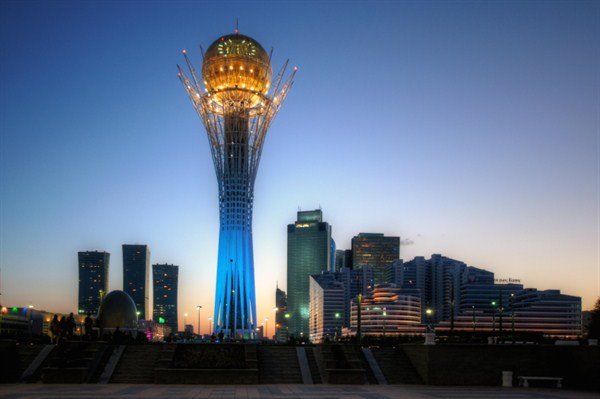A little over a year ago, Kazakhstan’s president, Nursultan Nazarbayev, weighed in on the most pressing political challenge facing Astana at the time: whether or not to change the country’s name. Before any consensus could be reached, however, unidentified men cropped up in Ukraine’s Crimean Peninsula, saying little and admitting less. Twelve months later, after Russia’s annexation of Crimea and amid an intermittent war in eastern Ukraine between Russian-backed separatists and the central government in Kiev, it’s clear that the status quo ante will not return. In just a year, Kazakhstan’s geopolitical environs have shifted more rapidly than at any point in its 23 years of independence since the fall of the Soviet Union. With Nazarbayev’s suddenly brittle regime facing a dire economic outlook and heightened security concerns, Kazakhstan has entered 2015 facing far more significant questions than what to call itself.
Interlocking economic and political factors have driven the upsurge in Kazakhstan’s sudden crisis. First, the commodities drop that has affected hydrocarbon exporters across the world hit the country hard. Kazakhstan has always relied heavily on its oil extraction, with hydrocarbons accounting for over 60 percent of its exports. Much like Russia and Azerbaijan, swollen oil prices over the past decade have allowed Kazakhstan to invest in buttressing state structures, reflected most visibly, and ostentatiously, in the rapid rise of futuristic architectural developments in the new capital, Astana. Indeed, Kazakhstan’s coffers over the past decade have swollen to such a degree that the Economist Intelligence Unit noted that Astana is projected to boast a higher GDP per capita than Russia during 2015.
But the costs of over-reliance on the buoyancy of oil prices is rapidly becoming apparent. With oil prices leveling out at approximately half of their 2014 high, Kazakhstan is facing a budget crunch similar to Russia and Azerbaijan. When viewed in conjunction with the bungled Kashagan super-giant oil field project—over a decade behind schedule and more than $50 billion over budget, with no signs of coming online anytime soon—Astana’s fiscal outlook has taken a severe hit over the past year.

